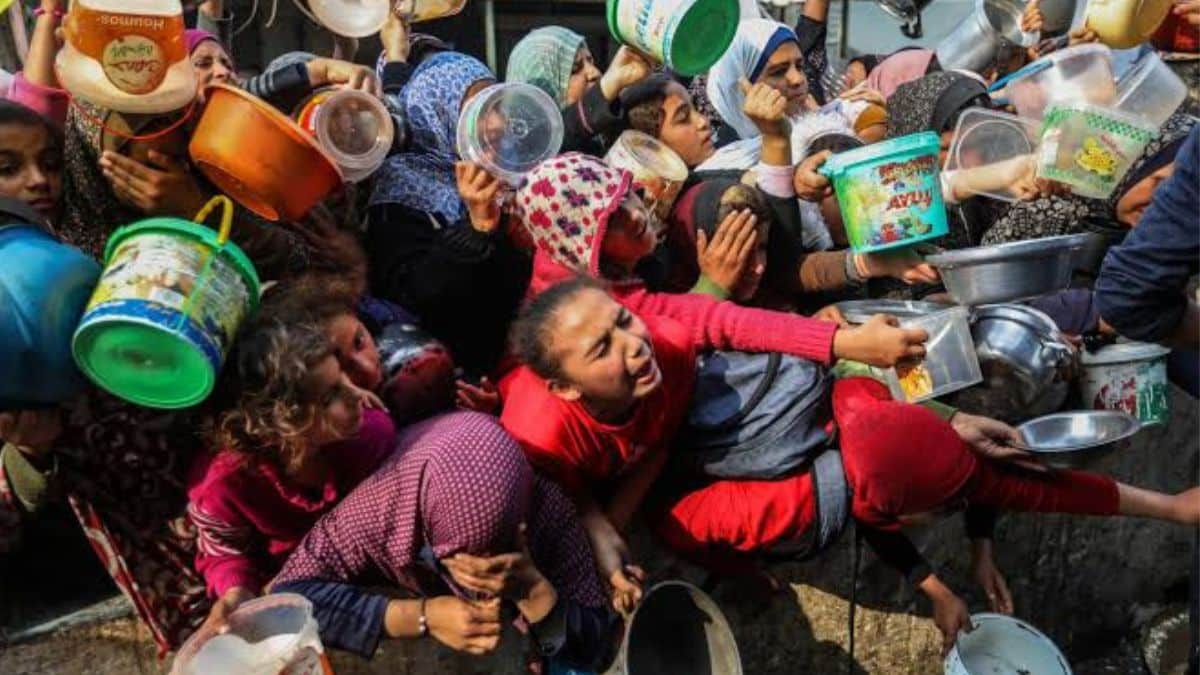 Image credits- Los Angeles Times
Image credits- Los Angeles Times
According to the WFP, the reduction in rations is a strategic move to ensure that the available food supplies reach a larger portion of the population affected by recent violence. The organization has reported a significant surge in the number of people requiring assistance, with new waves of displaced individuals seeking refuge in already overcrowded shelters and temporary accommodations.
The WFP’s regional director, Ahmed Rami, emphasized the gravity of the situation, stating, “We are facing an unprecedented challenge. Our priority is to provide critical assistance to as many people as possible, but with the current levels of need and restricted resources, we are forced to make difficult choices.” He further noted that the reduction in rations is a temporary measure and the organization is actively seeking additional funding and support to alleviate the crisis.
One of the primary reasons for the reduction in food rations is a significant shortfall in funding. The WFP relies on donations from governments and private entities to sustain its operations, and recent declines in contributions have forced the organization to scale back its support.
The ongoing conflict in Gaza has led to massive displacement, with thousands of families fleeing their homes in search of safety. This has resulted in an unprecedented increase in demand for humanitarian assistance, stretching the WFP’s resources to their limits.
The cuts may lead to social unrest as frustration grows among the affected population. Protests and other forms of public dissent could arise in response to the perceived abandonment by the international community.
Local officials and humanitarian organizations have expressed concern about the impact of ration cuts on the most vulnerable populations, including children and the elderly. They fear that reduced food supplies could exacerbate malnutrition and health issues among those already in dire conditions.
The WFP has called for increased international support and funding to help mitigate the crisis and restore full rations as soon as possible. The agency is also working to improve logistical operations to ensure that aid reaches the most affected areas efficiently.
